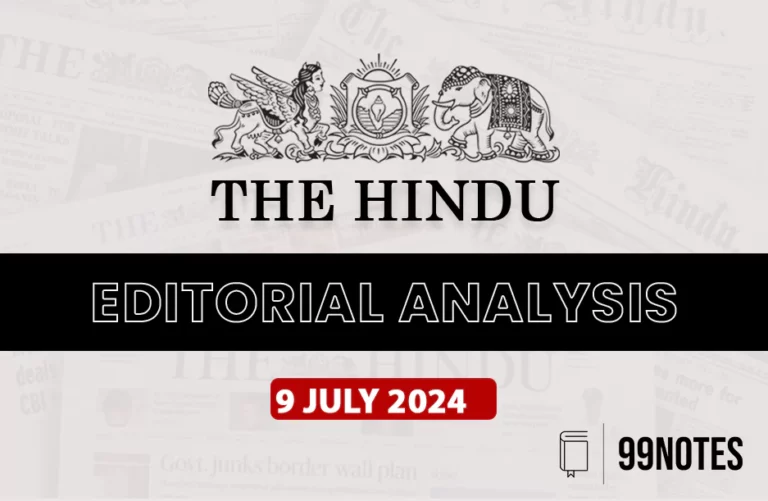18 December 2024 : The Hindu Editorial Analysis
1. The legal gaps in India’s unregulated AI surveillance
(Source – The Hindu, International Edition – Page No. – 8)
| Topic: GS3 – Science and Technology |
| Context |
|
India’s Growing AI-Powered Surveillance Infrastructure
- In 2019, India announced its ambition to create the world’s largest facial recognition system for policing.
- Over five years, AI-powered surveillance systems have been deployed in railway stations, and the Delhi Police is using AI for crime patrols.
- Plans to launch 50 AI-powered satellites further expand India’s surveillance infrastructure.
Legal and Constitutional Concerns in AI Surveillance
- AI-driven surveillance raises questions about potential overreach and infringement on citizens’ rights.
- Global parallels, such as the U.S. Section 702 of the Foreign Intelligence Surveillance Act (FISA), highlight risks of “dragnet surveillance,” where data is collected indiscriminately.
Privacy Concerns and Data Breaches
- The Telangana Police data breach revealed misuse of social welfare databases like “Samagra Vedika” by law enforcement.
- This incident highlighted the lack of transparency and safeguards in data collection practices.
Lack of Proportional Safeguards
- Privacy, recognized as a fundamental right under Article 21 in the K.S. Puttaswamy vs Union of India (2017) judgment is undermined by India’s surveillance practices.
- Current surveillance lacks proportional safeguards, creating challenges for “informational privacy.”
- While the Digital Personal Data Protection Act (DPDPA) 2023 was introduced to address privacy concerns, it has significant flaws.
Issues with the Digital Personal Data Protection Act (DPDPA) 2023
- The DPDPA provides broad government exemptions for data processing without consent:
- Section 7(g) allows consent waiver for medical treatment during epidemics.
- Section 7(i) exempts government data processing for employment purposes.
- Citizens face obligations under Section 15(c) to ensure data accuracy, risking punitive measures for minor errors.
- The framework disproportionately favors state surveillance over individual rights.
Contrasting Approaches in the West
- The European Union’s Artificial Intelligence Act categorizes AI activities by risk, banning high-risk practices like real-time biometric identification in most cases.
- In contrast, India deploys AI-powered facial recognition and surveillance without legislative debate or risk assessments.
- Promises to regulate AI under the Digital India Act remain unfulfilled, leaving a regulatory vacuum.
Constitutional Questions and Civil Liberties
- India’s surveillance practices challenge constitutional principles like the right to privacy and proportionality.
- AI surveillance requires robust laws to ensure legitimacy, necessity, and proportionality.
Recommendations for a Balanced Approach
- A comprehensive regulatory framework is needed to balance AI integration with citizens’ rights:
- Transparent data collection practices with public disclosure of purpose and duration.
- Narrow, specific exemptions with independent judicial oversight.
- Adoption of a risk-based regulatory approach, similar to the EU model, to classify AI activities by risk levels.
- Transparent consent mechanisms, judicial oversight, and regular transparency reports can safeguard privacy.
- Policy decisions must embed privacy protections at the design stage to avoid costly retrofits.
Need for Proactive Regulation
- The DPDPA addresses some concerns but remains incomplete without accompanying rules.
- Regulating high-risk AI activities through strict oversight of data processing and sharing is critical.
- A proactive approach can ensure AI serves public interest without compromising civil liberties.
| PYQ: Introduce the concept of Artificial Intelligence (AI). How does AI help clinical diagnosis? Do you perceive any threat to privacy of the individual in the use of Al in healthcare? (150 words/10m) (UPSC CSE (M) GS-3 2023) |
| Practice Question: Critically analyze the implications of AI-powered surveillance on citizens’ privacy in India. Suggest measures to balance technological advancements with constitutional safeguards. (150 Words /10 marks) |

